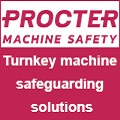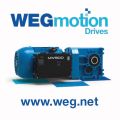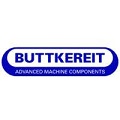
Posted to News on 9th Jan 2007, 19:40
How to specify low-voltage industrial power supplies
With most industrial automation systems now based on equipment that operates at low voltages – typically 24V DC – there is a big demand for power supplies for use in tough industrial applications, as David Norton, Vice President of Marketing at Lambda, explains.
With cost being a key issue, there is a temptation for designers to specify the cheapest power supply that may appear to be capable of meeting the needs of the application. This is, however, an unwise approach, as an inadequately specified power supply can compromise not only the performance but also the safety of the entire installation.
Specifying a power supply is often a decision product designers overlook, sometimes trying to make the power supply fit the space rather than the application. Listed below are some of the most important points that relate to the sourcing of industrial power supplies.
High-quality components
The prices of power supplies with the same basic specifications vary greatly because there are many areas where power supply manufacturers can cut the cost of their products without affecting the basic rating. Unfortunately, this cost-cutting invariably results in a product where some of the less obvious, but equally important characteristics, such as life and reliability are compromised if used in the wrong application.
For example, many of the components used in power supplies, such as semiconductors and capacitors, are available in consumer, industrial and military grades.
Consumer-grade components are the least expensive and are intended for use in televisions, DVD players etc, where they offer reasonable life in an undemanding operating environment. Power supplies based on them are certainly low in price but are, in general, unsuitable for industrial applications where the tougher operating conditions result in poor reliability and short life.
Industrial-grade components are better suited for use in arduous conditions and also have a wider temperature range over which correct operation is guaranteed. Power supplies based on these components offer the optimum balance between price and performance in the majority of industrial applications. One example of this lowest-cost-of-ownership balance is highlighted by a project in which Lambda was supplying LZSA power supplies to a company that makes LED signs for use on America's freeways. In this application the -40degC start-up was imperative. As there is a financial penalty if the signs fail, paying an extra $100 for another year of service life is a worthwhile investment. The power supplies are guaranteed for five years but typically offer eight years of service life.
Military-grade components are the most expensive option. They are used in some high-end industrial supplies that can, in spite of their higher price, be a good choice for particularly demanding applications such as those where continuous operation at high ambient temperatures is envisaged. The LZSA units meet the demanding vibration and shock specifications of military standard MIL-STD-810E. This includes a great deal of work done on the packaging in order to meet the standards demanded as part of the supply chain.
To reiterate, using power supplies in the wrong application to save costs is unlikely to prove an economical choice in the long term. The cost of a single in-service failure will almost certainly outweigh, by a large factor, any savings in the purchase price.
EMC performance
The requirements imposed by the electricity supply companies relating to the EMC performance of industrial installations are becoming more and more stringent, so this is a very important factor to consider in relation to power supplies.
Of particular concern is the generation of harmonics. All modern power supplies use a high-frequency semiconductor switch as part of their design and, in poorly designed products, this switch can produce high levels of harmonics which find their way back into the mains supply. A partial solution is the addition of filters, either within the power supply or fitted externally. However, filters always take up space and increase costs.
A better solution is to design the switching arrangement so that it inherently minimises harmonic generation. This is a considerable challenge for power supply designers, but it is possible, as is demonstrated by Lambda's patented and very successful multi-resonant switching topology.
Energy efficiency
Even in these energy-conscious days, cutting a few watts from the losses by choosing a more efficient power supply may not seem hugely important. There is, however, another angle to consider - that lost watts do not disappear, they are converted to heat.
Heat is a particular problem in many of today's very compact industrial control panels. Selecting an efficient power supply, therefore, not only provides a small but useful reduction in running costs, it also eases thermal management requirements for the system in which it is used.
Efficiency largely depends, once again, on the design of the power supply's switching circuitry. For industrial products a figure of around 80 per cent or better should be expected, but efficiency and harmonic generation are, to a certain extent, interdependent. Be wary, therefore, of choosing a supply on the basis of efficiency alone, without also considering its EMC performance.
Hold up time
This is the amount of time in milliseconds (ms) that a PSU can hold output at the correct voltage after a loss of input power. This allows equipment to carry on running, despite a brief interruption in AC power with the higher the figure the better. If you lose your AC, the LZSA will give hold up of around 40ms, double the time of most other PSUs. This has come at the request of customers and allows time for them to start backing up their information or to switch to a UPS. 40ms is an eternity in hold up terms.
Is a general-purpose supply a good choice for industrial applications?
Provided that a general-purpose supply meets the requirements already discussed, it is likely to be suitable for industrial use. However, power supplies designed specifically for industrial applications typically offer useful extra features. An example is a 'DC Good' output, which provides a signal to confirm that the output of the power supply is within acceptable tolerances.
This can be used to shut down the automation system if the power supply ceases to function correctly because, for example, a brownout or fault has reduced the voltage available from the mains. This is important in automation systems, as a low output voltage from the power supply, if not acted upon, can lead to uncertain and possibly dangerous functioning of equipment like process valves and motor starters.
Industrial power supplies may also be more robust physically than their general-purpose counterparts and better able to withstand the rigours of use on the factory floor.
Can I get it when I want it?
There is little point in trawling catalogues and websites to find the best possible power supply for a particular application if the supplier is unable to deliver the product when it is needed. It is always worth checking availability as well as price and technical specification.
Where the supplies are to be used regularly, the lead-time for production quantities is likely to be another important factor. Given the huge variety of power supplies in common use, it is not safe to assume that the manufacturer will have exactly the right products sitting on the shelf whenever they're needed.
A company that, like Lambda, has invested heavily in lean manufacturing and efficient production technologies will, however, be able to supply prototypes promptly, and then match the needs of even the most demanding call-off schedules.
When looking to source the correct power supply, plenty of choice can never be a bad thing and, with power supplies for industrial applications, there is certainly no shortage of choice. As we have seen, however, power supplies are by no means all created equal. If reliability, performance and lowest cost of ownership are to be achieved, it is essential to ask the right questions before placing an order.






























